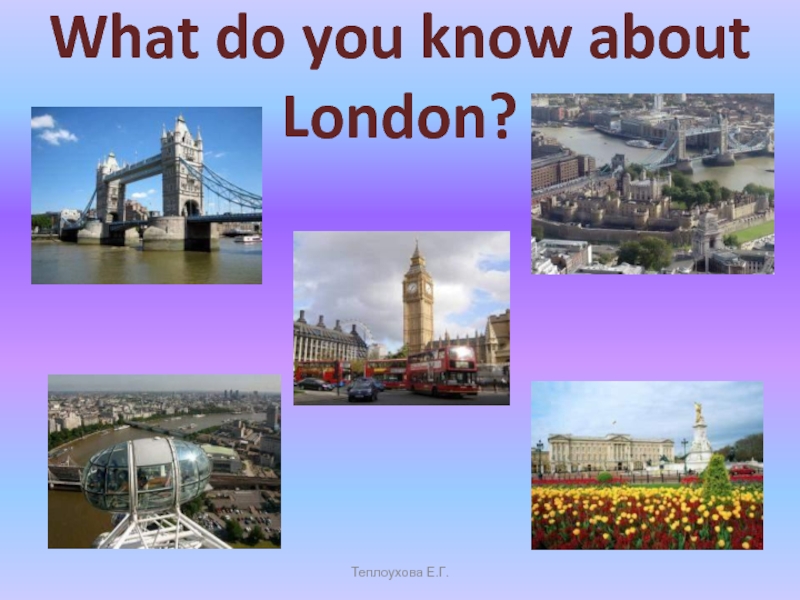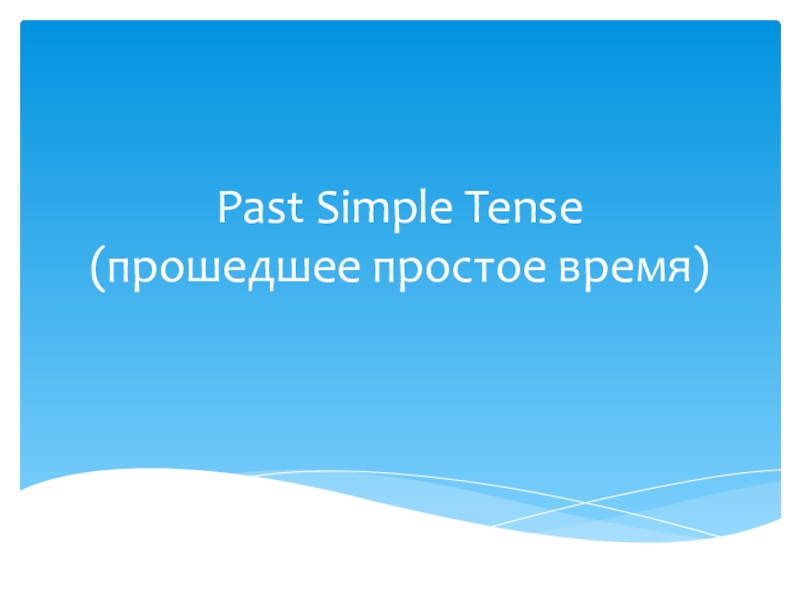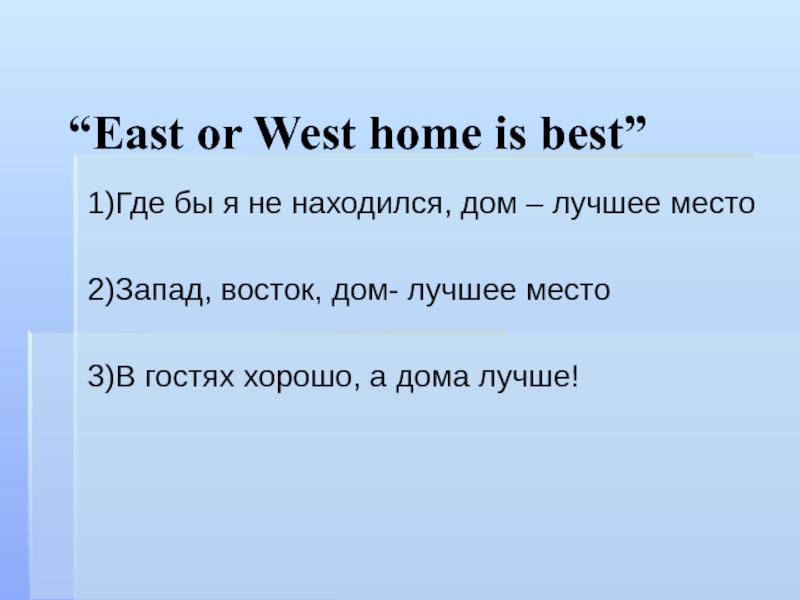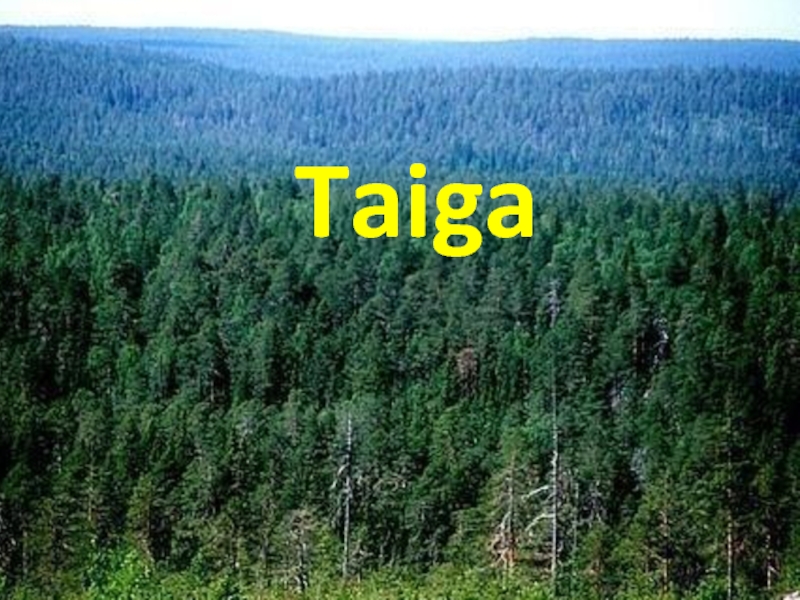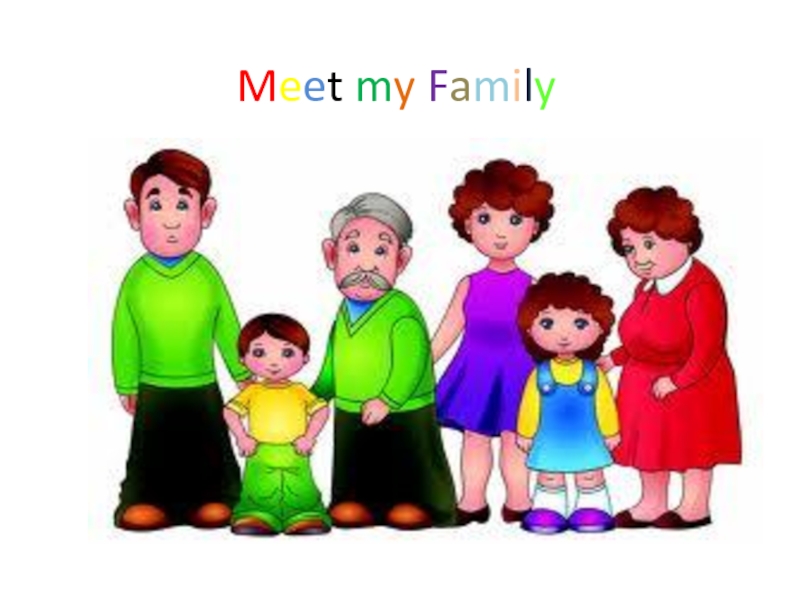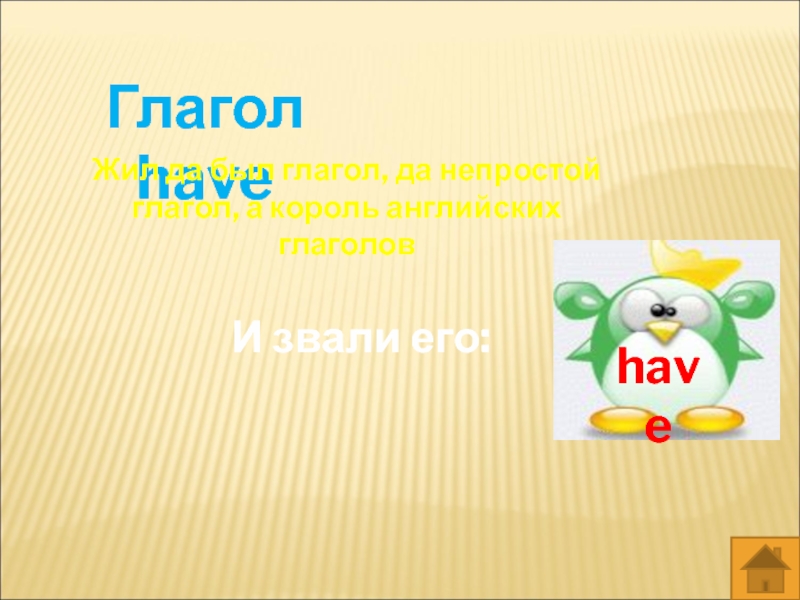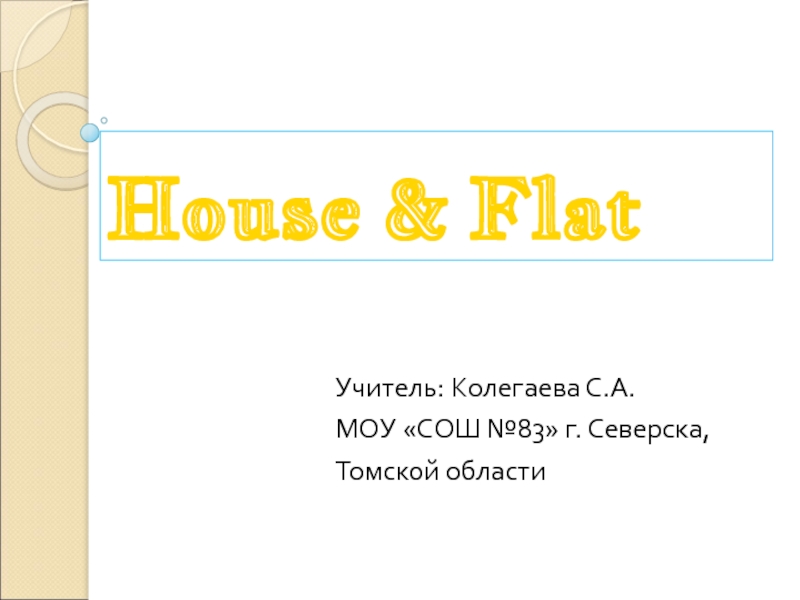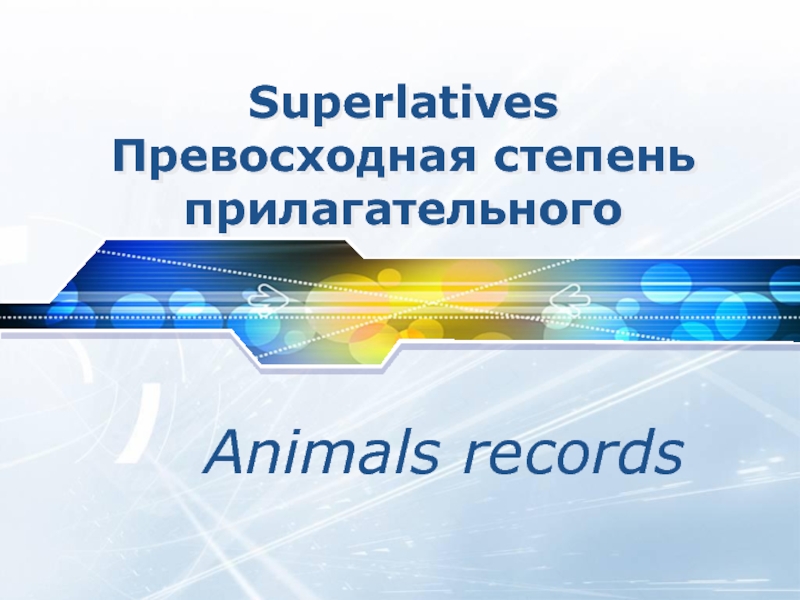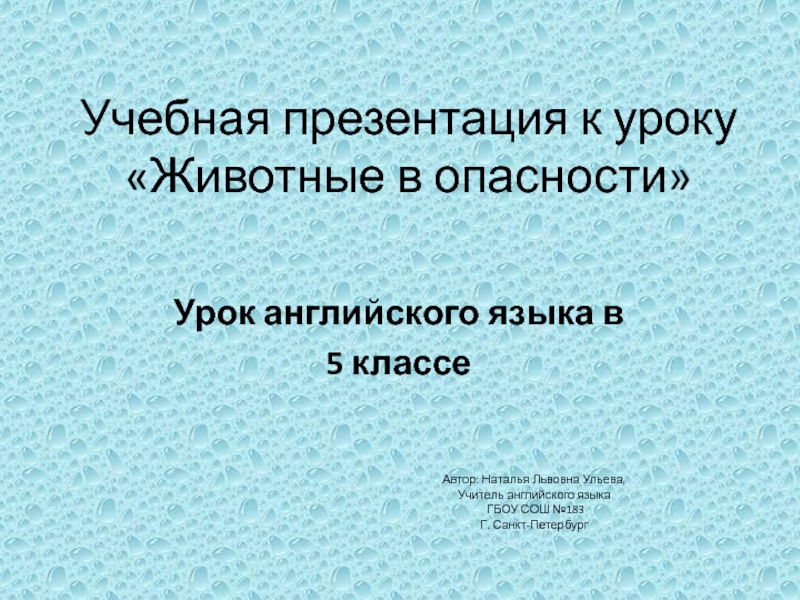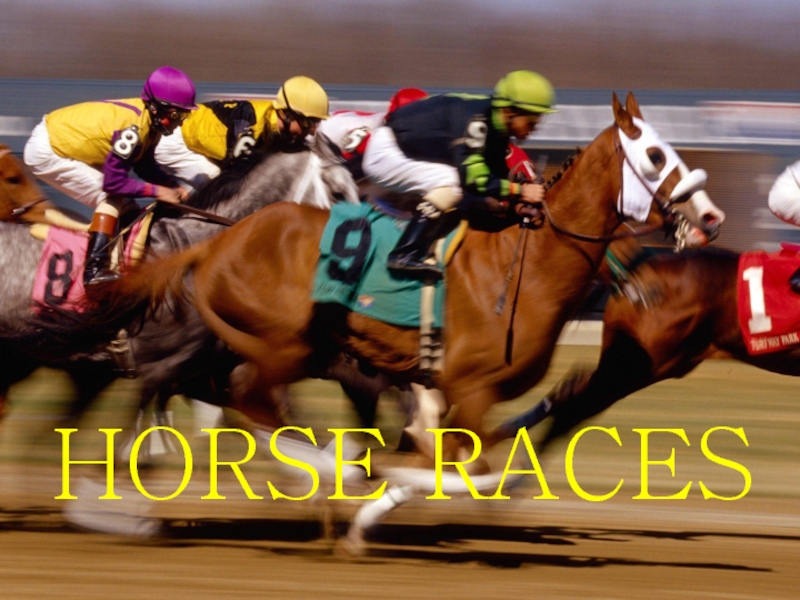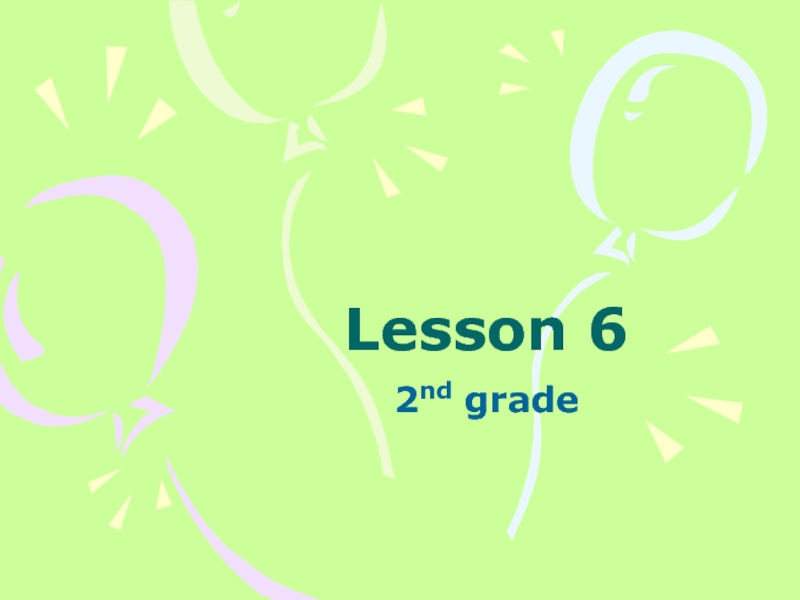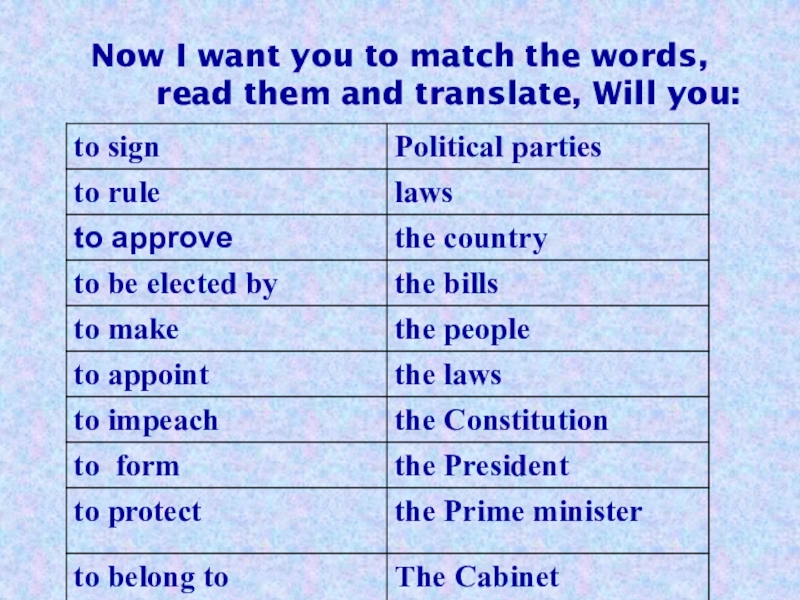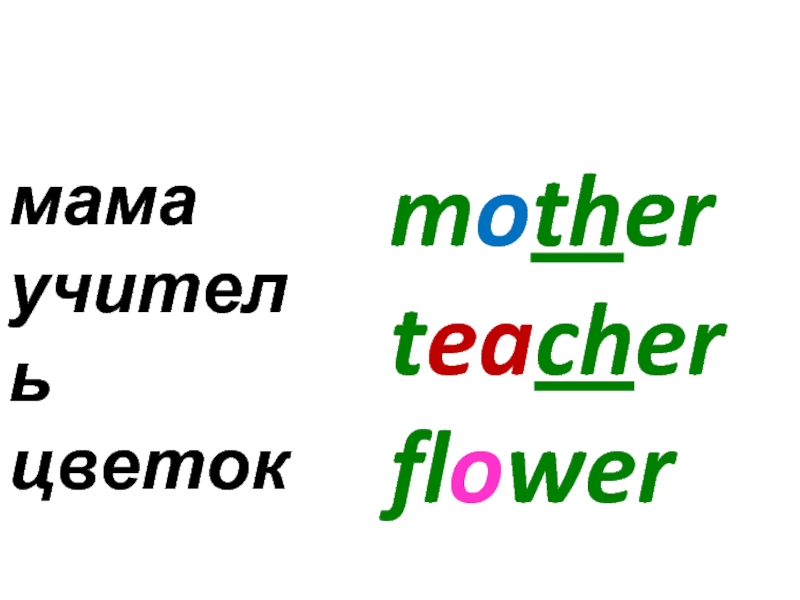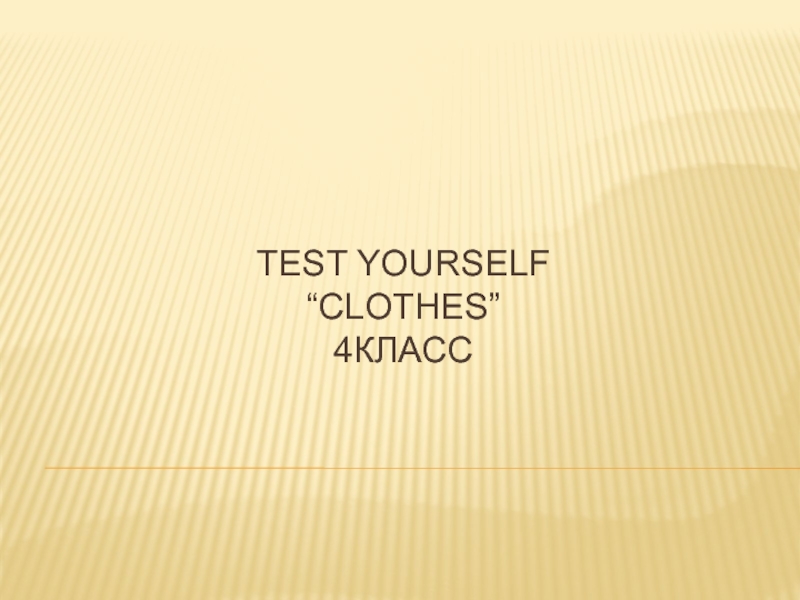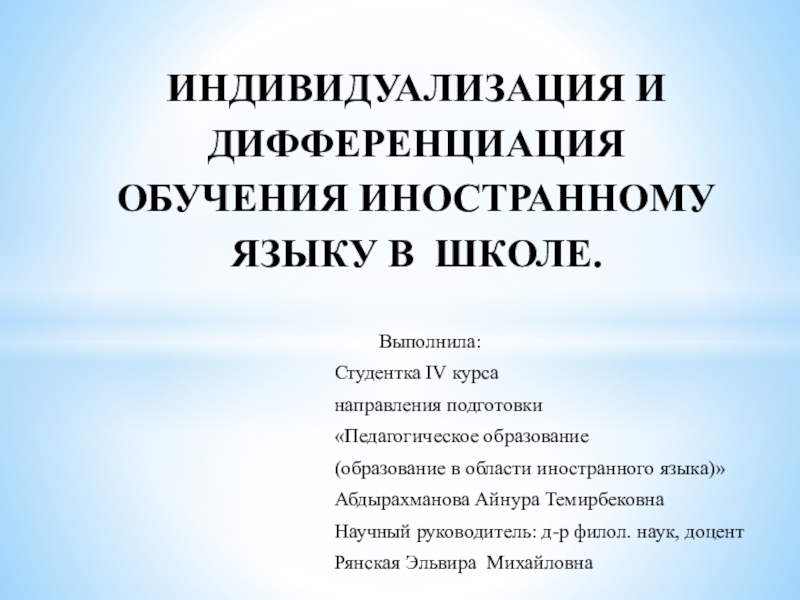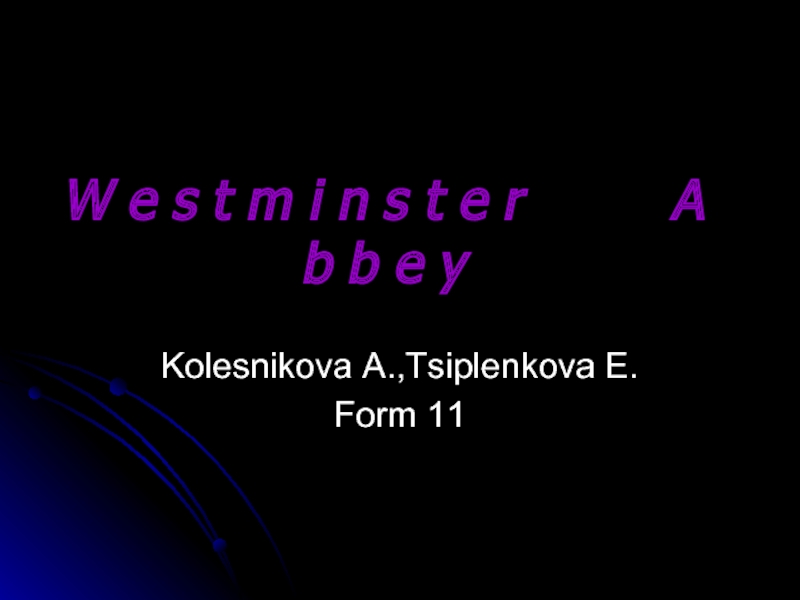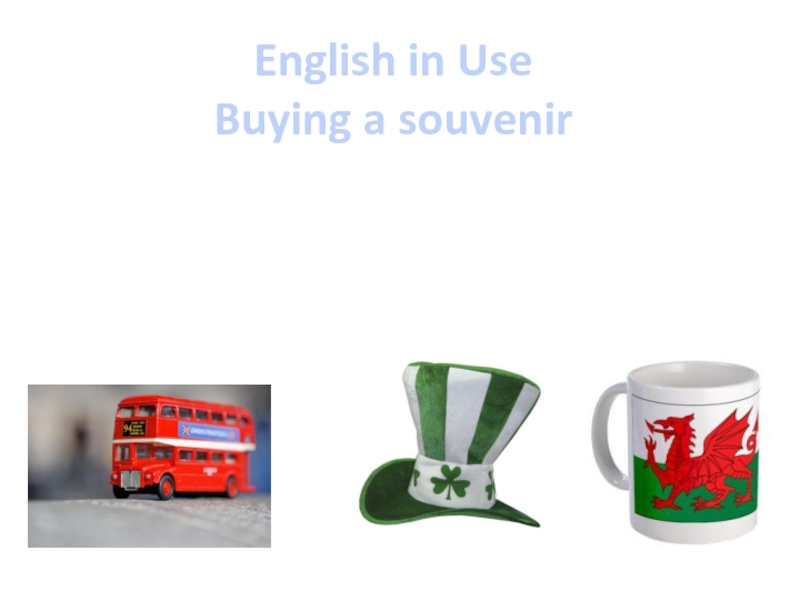Разделы презентаций
- Разное
- Английский язык
- Астрономия
- Алгебра
- Биология
- География
- Геометрия
- Детские презентации
- Информатика
- История
- Литература
- Математика
- Медицина
- Менеджмент
- Музыка
- МХК
- Немецкий язык
- ОБЖ
- Обществознание
- Окружающий мир
- Педагогика
- Русский язык
- Технология
- Физика
- Философия
- Химия
- Шаблоны, картинки для презентаций
- Экология
- Экономика
- Юриспруденция
State verbs. Глаголы состояния 7-11 класс
Содержание
- 1. State verbs. Глаголы состояния 7-11 класс
- 2. State or stative verbs express a permanent
- 3. verbs of senseto see [siː] - видетьto
- 4. verbs of feelings and emotions to dislike
- 5. verbs of opinion to agree [ə'griː] -
- 6. verbs of physical properties of objectsto weigh
- 7. other verbs to appear [ə'pɪə] - производить
- 8. other verbs to have [həv] - иметь,
- 9. other verbs to prefer [prɪ'fɜː] - предпочитатьto
- 10. Some state verbs have continuous forms but
- 11. Choose the correct variant:I see/am seeing the
- 12. That dress looks/is looking nice on you.Paul
- 13. Скачать презентанцию
State or stative verbs express a permanent state rather than action and are not used in the continuous forms.
Слайды и текст этой презентации
Слайд 1State verbs
глаголы состояния
МИНИСТЕРСТВО ОБОРОНЫ РОССИЙСКОЙ ФЕДЕРАЦИИ
ФГКОУ «СЕВЕРО-КАВКАЗСКОЕ СУВОРОВСКОЕ ВОЕННОЕ
УЧИЛИЩЕ»
Слайд 2State or stative verbs express a permanent state rather than
action and are not used in the continuous forms.
Слайд 3verbs of sense
to see [siː] - видеть
to feel [fiːl] -
чувствовать, ощущать; быть способным что-л. ощущать
to hear [hɪə] - слышать,
обладать слухомСлайд 4verbs of feelings and emotions
to dislike [dɪ'slaɪk] - испытывать
неприязнь, не любить
to enjoy [ɪn'ʤɔɪ] - любить, получать удовольствие
to
forgive [fə'gɪv] - прощатьto hate [heɪt] - ненавидеть
to like [laɪk] - любить, нравиться
to love [lʌv] - любить
Слайд 5verbs of opinion
to agree [ə'griː] - сходиться во взглядах
to
believe [bɪ'liːv] - думать, полагать
to suppose [sə'pəuz] - подразумевать, предполагать,
to understand [ˌʌndə'stænd] - подразумевать, иметь в виду
to think [θɪŋk] - думать, полагать, считать; иметь (какое-л.) мнение
to consider [kən'sɪdə] - [kən'sɪdə]
Слайд 6verbs of physical properties of objects
to weigh [weɪ] - )
весить, иметь вес (об аргументах, доводах)
to measure ['meʒə] - иметь
размерto amount [ə'maunt] - равняться; составлять
to smell [smel] - чувствовать запах, чуять; обонять
to taste [teɪst] - иметь вкус, привкус
to sound saund] - звучать, издавать звук
Слайд 7other verbs
to appear [ə'pɪə] - производить впечатление; казаться
to belong
[bɪ'lɔŋ] - принадлежать (кому-л.), быть (чьей-л.) собственностью
to concern [kən'sɜːn] -
затрагивать, касаться, иметь отношениеto contain[kən'teɪn] - содержать в себе, включать
to depend [dɪ'pend] - зависеть, находиться в зависимости (от кого-л., чего-л.)
to fit [fɪt] - быть впору, быть в самый раз, подходить
Слайд 8other verbs
to have [həv] - иметь, обладать
to know
[nəu] - знать, иметь представление
to mean [miːn] - думать, подразумевать
to
possess [pə'zes] - владеть, иметь, обладать, располагатьto need [niːd] - нуждаться (в чём-л.); иметь надобность, потребность
Слайд 9other verbs
to prefer [prɪ'fɜː] - предпочитать
to want [wɔnt] -
желать, хотеть
to wish [wɪʃ] - желать, хотеть
to keep [kiːp] -
держаться, сохраняться, оставаться (в известном положении, состоянии)to seem [siːm] - казаться, представляться; иметь какое-л. представление или ощущение
Слайд 10Some state verbs have continuous forms but there is a
difference in meaning
I think she is rich.
The milk tastes
awful.This cloth feels like velvet.
I see you are in trouble.
These flowers smell nice.
He has a house.
Do you like his new car.
Ann is polite.
It looks as if it’s going to snow.
The baby weighs 5 kilos.
Your hair looks great.
I love holidays.
I’m thinking about your offer.
He is tasting the soup.
He is feeling the cloth.
She’s seeing her doctor today.
Why are you smelling the food? We are having a nice time.
How are they liking the party?
Ann is being impolite today.
They are looking at the statue.
I’m weighing myself.
I’m loving this holiday.
Слайд 11Choose the correct variant:
I see/am seeing the situation is out
of control.
The sausages taste/are tasting delicious.
Do you enjoy/are you enjoying
the party?You haven’t said a word all morning. What do you think/are you thinking about?
He has/is having a cat.
These flowers smell/are smelling nice.
I don’t know/am not knowing where she keeps the keys.
Why do you feel/are you feeling your pockets? Have you lost anything?
Why do you smell/are you smelling the milk? Do you think it has gone off (испортилось)?
Anna is Italian. She comes/is coming from Italy.
Слайд 12That dress looks/is looking nice on you.
Paul listens/is listening to
a new record in his room.
If you don’t look/aren’t looking
at that comic book, I’d like to see it.Joan weighs/is weighing 50 kilos.
Mary is/is being very naughty these days.
This roast chicken tastes/is tasting delicious.
Do you see/are you seeing Peter tomorrow night?
These shirts don’t fit/aren’t fitting me any more?
You look/are looking very pretty today.
George looks/is looking very tired.
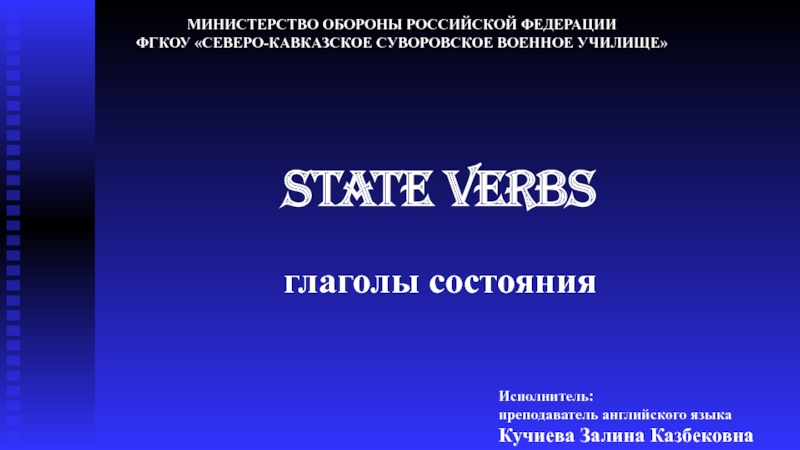

![State verbs. Глаголы состояния 7-11 класс verbs of senseto see [siː] - видетьto feel [fiːl] - чувствовать, verbs of senseto see [siː] - видетьto feel [fiːl] - чувствовать, ощущать; быть способным что-л. ощущатьto hear](/img/thumbs/d615bf683cb5180b252a10fd76a7b89c-800x.jpg)
![State verbs. Глаголы состояния 7-11 класс verbs of feelings and emotions to dislike [dɪ'slaɪk] - испытывать неприязнь, verbs of feelings and emotions to dislike [dɪ'slaɪk] - испытывать неприязнь, не любитьto enjoy [ɪn'ʤɔɪ] - любить,](/img/thumbs/ab4c54b78335d594ab4a578f96c9181e-800x.jpg)
![State verbs. Глаголы состояния 7-11 класс verbs of opinion to agree [ə'griː] - сходиться во взглядахto believe verbs of opinion to agree [ə'griː] - сходиться во взглядахto believe [bɪ'liːv] - думать, полагатьto suppose [sə'pəuz]](/img/thumbs/5a40f00652d80c64bdb8edee38027cc2-800x.jpg)
![State verbs. Глаголы состояния 7-11 класс verbs of physical properties of objectsto weigh [weɪ] - ) весить, verbs of physical properties of objectsto weigh [weɪ] - ) весить, иметь вес (об аргументах, доводах)to measure](/img/thumbs/4cb21a2ac01ea250f25cc032e14a92b7-800x.jpg)
![State verbs. Глаголы состояния 7-11 класс other verbs to appear [ə'pɪə] - производить впечатление; казатьсяto belong [bɪ'lɔŋ] other verbs to appear [ə'pɪə] - производить впечатление; казатьсяto belong [bɪ'lɔŋ] - принадлежать (кому-л.), быть (чьей-л.) собственностьюto](/img/thumbs/ec8490bb3d1df6a1c3b097e348fec5e2-800x.jpg)
![State verbs. Глаголы состояния 7-11 класс other verbs to have [həv] - иметь, обладать to know [nəu] other verbs to have [həv] - иметь, обладать to know [nəu] - знать, иметь представлениеto mean [miːn]](/img/thumbs/799e9f4fb021352a36a65fa424357083-800x.jpg)
![State verbs. Глаголы состояния 7-11 класс other verbs to prefer [prɪ'fɜː] - предпочитатьto want [wɔnt] - желать, other verbs to prefer [prɪ'fɜː] - предпочитатьto want [wɔnt] - желать, хотетьto wish [wɪʃ] - желать, хотетьto](/img/thumbs/10b917fe66b252533b0779a81e6a7f4e-800x.jpg)




